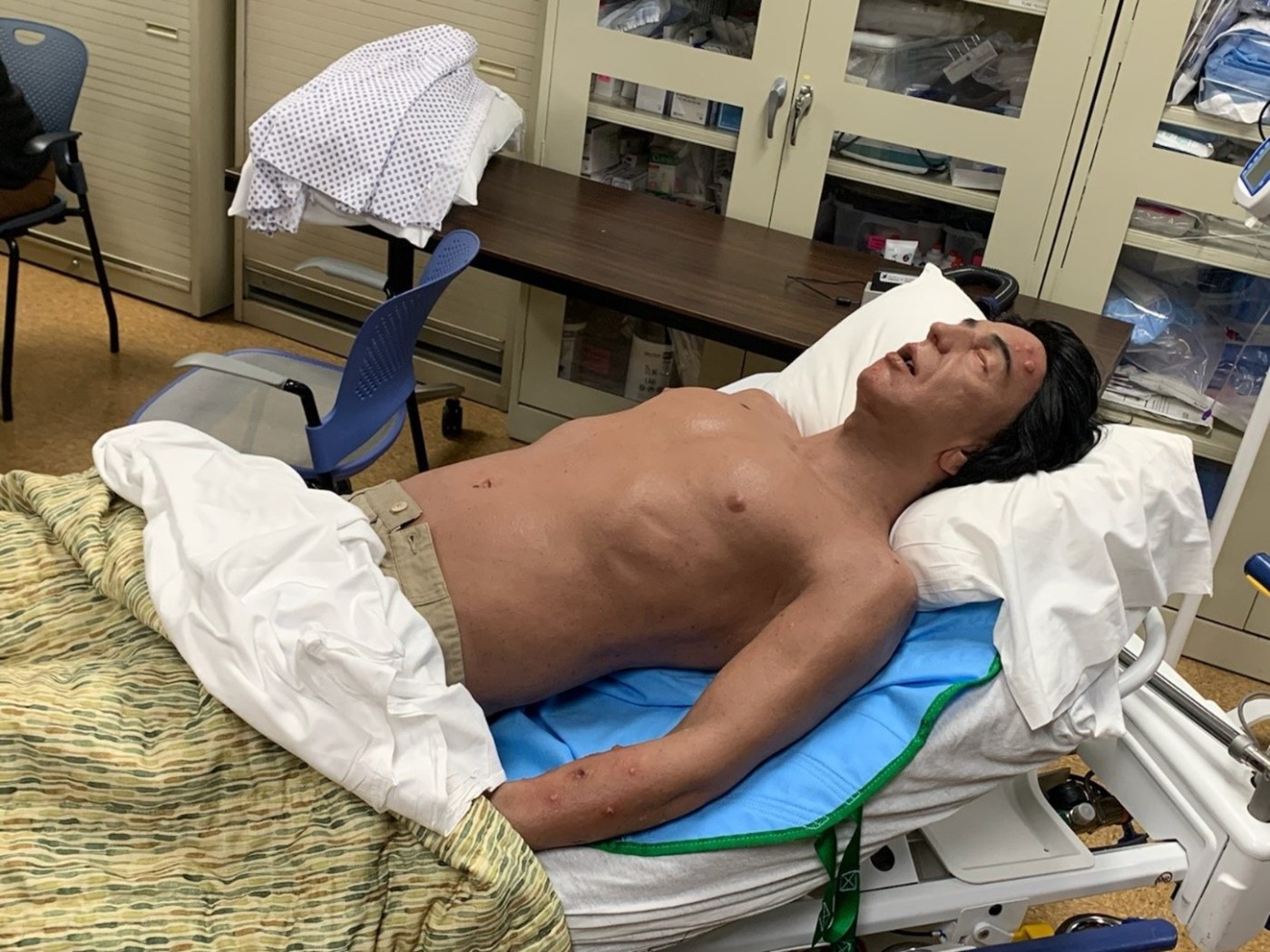Recently, Monkeypox (Mpox) has been in the news, with an outbreak in May 2022 that brought the disease to areas where Mpox was not endemic. This was the largest global outbreak of the disease ever, with over 19,000 confirmed cases.
Caregivers at VA were ready, thanks to the prescient thinking of the Tampa VA Advanced Simulation Center and the VA Tampa Healthcare System’s infection control and disaster emergency management program, which created a first-of-its-kind Monkeypox manikin to train staff on recognizing and treating the disease.
Collaboration with private sector develops first Monkeypox manikin of its kind
Working alongside Echo Healthcare, who handcraft each manikin to order, the team developed the very first manikin that portrays a patient afflicted with Mpox. From the hair to the eyes, hands, fingernails and toenails, this first of its kind, high-fidelity manikin represents what is possible when VA and private industry come together to prepare for public health emergencies.
The silicone construction of the manikin gives it a more lifelike feel when compared to the standard hard plastic simulators, delivering training that is far closer to real life. Not only are the manikin’s features lifelike, its silicone body sculpture mimics muscle tone. The fine details come down to the specific symptoms of Mpox, with various stages of the Mpox pustules, or small bumps, that contain fluid or puss so that staff could identify the stages that the lesions were in. One pustule allows the simulation facilitator to fill it with a purulent fluid to truly express what the stage of pustule looks like before and after expelling the drainage.
The realism of this manikin allows learners to see what Mpox could look like and how it can easily be mistaken for other types of skin disorders, like shingles, flea bites, herpes and other sexually transmitted diseases.
The manikin’s functionality also extends beyond physical reactions. Part of the monkeypox training and simulation curriculum incorporates how psychological support is needed from the health care staff. The manikin shows how a person may feel embarrassed or ashamed with the various lesions on their body. The social isolation factor was also discussed along with ways to provide social support to any patient who may encounter the disease.
Life-like Monkeypox manikin increases engagement and education
Physicians appreciated how well this manikin replicated an actual patient with this disease. For example, respiratory therapists were impressed when they saw the manikin’s oral cavity had simulated Mpox lesions in the airway, which would be a concern if they would need to intubate a patient. Environmental management services professionals stopped class at one point to ask how to clean the room after a monkeypox patient was transferred or discharged. Registered nurses came and retook the training after completing the class because they enjoyed the realistic approach to training with the manikin.
From the 132 hospital interdisciplinary staff that completed the training evaluations, 98% of them preferred to train on the life-like manikin compared to a high-fidelity simulator because the realism captured their attention and motivated them to learn more. It is this kind of forward-thinking innovative work and collaboration that makes VA a leader not just in Veteran health care, but health care nationwide. By ensuring staff are trained in realistic simulation scenarios, VA is ensuring that when Veterans need our care, whether for Mpox or any other disease, their caregivers are ready.
Topics in this story
More Stories
The 2024 National Veteran Suicide Prevention Annual Report provides the foundation for VA’s suicide prevention programs and initiatives.
Theranostics is a specialized field of nuclear medicine that uses a two-pronged approach to diagnose and treat cancer.
Air Force Veteran Shireta Jones overcomes obstacles with support from VA and adaptive devices to continue her passion for pickleball.







I can’t see the puss. Perhaps it’s hiding under the covers?